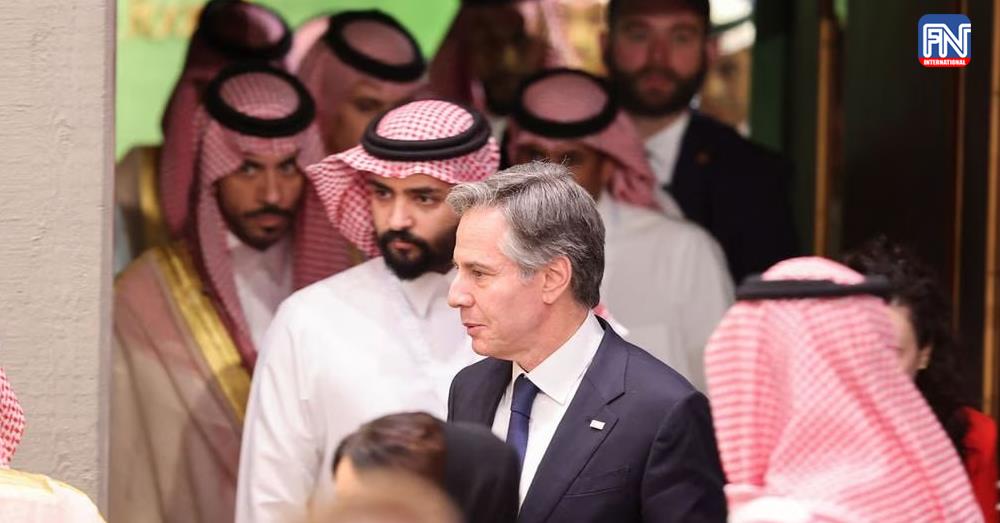RIYADH, June 8 (Reuters) - Washington will press ahead with efforts to normalize diplomatic ties between its main Middle East allies Saudi Arabia and Israel, Secretary of State Antony Blinken said on Thursday.
But he declined to say whether the United States would back Riyadh's nuclear ambitions.
At a joint news conference, Blinken's Saudi counterpart, Prince Faisal bin Farhan, said he hoped an agreement could be reached for the United States to aid his country's bid to generate nuclear power.
Neither addressed whether U.S. support for Saudi Arabia's civilian nuclear program could be given in exchange for normalization with Israel, a deal that has been floated by Riyadh.
Blinken, who was in the kingdom as part of a U.S. push to defuse rows that have touched on oil prices, human rights and Riyadh's opening to Iran, said normalizing relations between Israel and its neighbors to make way for a more integrated Middle East was a priority for the United States.
"We discussed it here, and we will continue to work at it, to advance it, in the days, weeks and months ahead," he said as he concluded his three-day visit.
Saudi Arabia, a Middle East powerhouse and home to Islam's two holiest shrines, has resisted heavy U.S. pressure to end generations-old non-recognition of Israel as have Gulf Arab neighbors the United Arab Emirates and Bahrain.
Speaking alongside Blinken, Prince Faisal agreed that normalization would bring benefits, but said those would be limited if there was not a pathway toward a two-state solution between Israelis and Palestinians.
A source familiar with the matter said Riyadh wants U.S. support for its civilian nuclear program in exchange for normalization with Israel. The Wall Street Journal reported in March that the nuclear help, as well as security guarantees, were among the concessions sought by Riyadh.
Prince Faisal said Saudi Arabia would prefer to have the U.S. as a bidder for the program, although he did not say if the nuclear ambitions were a precondition for normalization.
Talks on civilian nuclear cooperation have stalled with Riyadh refusing to agree to limits on nuclear enrichment and reprocessing designed to prevent it from developing nuclear weapons.
"We have differences of opinion but we are working on finding mechanisms for us to be able to work together," Prince Faisal said, adding that there were other bidders and the kingdom intended to move forward with the program.
